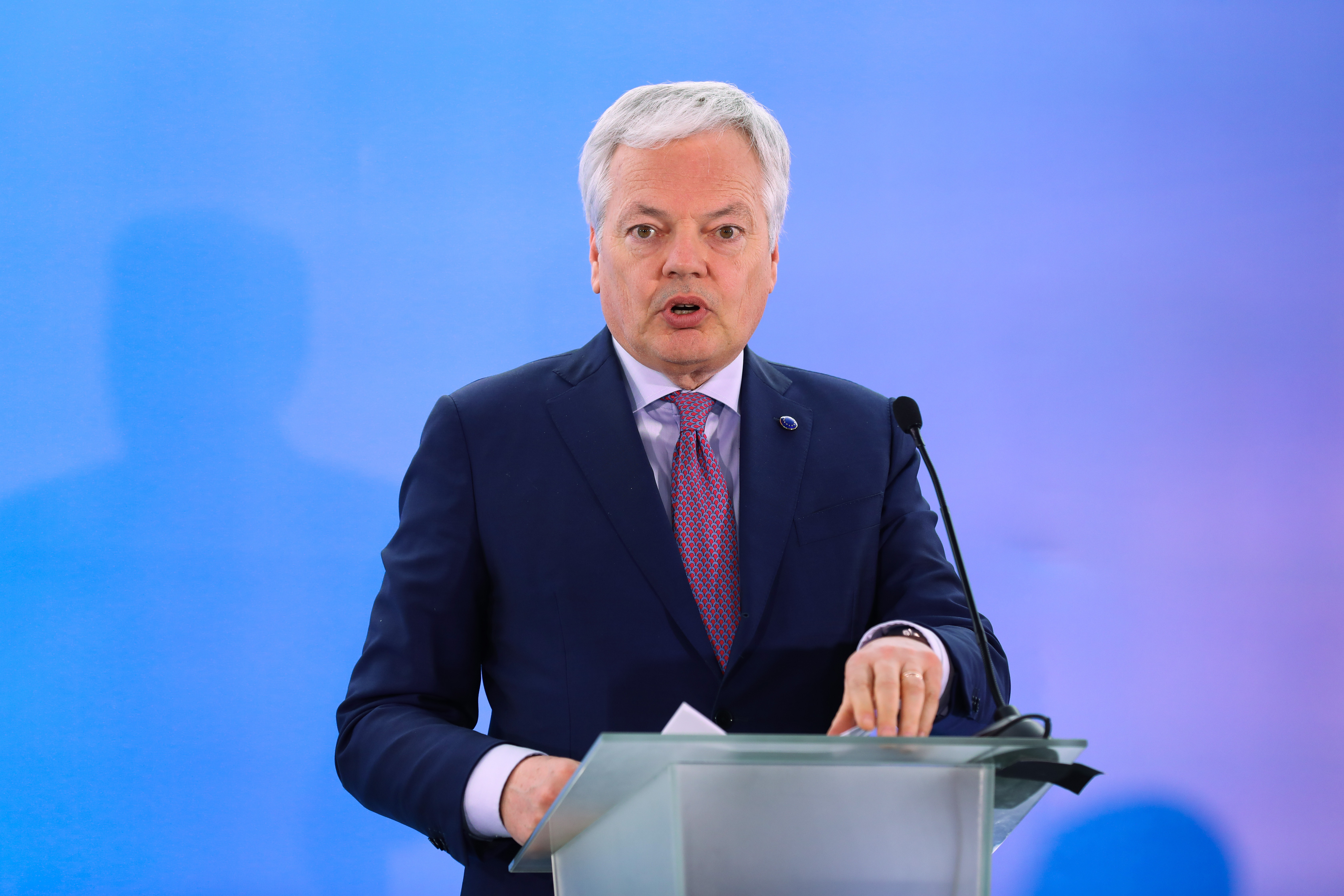After the doubts and concerns expressed from some sectors in the European Union (EU) regarding Spain's proposed law for an amnesty on Catalan independence process offences, the acting Spanish government has already sent the draft text of the bill to the European Commission. Acting presidency minister Félix Bolaños sent two emails, one to the vice-president of the European Commission, Věra Jourová, and the other to the justice commissioner, Didier Reynders. The latter had sent a letter to Bolaños asking for "detailed" information on the law, which was being negotiated at the time of the request. In the reply from Bolaños, a meeting is requested with Reynders and Jourová "to be able to explain to them the position of the government of Spain on this matter", according to elDiario.es.
In last Wednesday's note to Spain, Reynders stated that he had responded to the "serious concerns" generated by the possible amnesty law, which "has become an issue of considerable importance in the public debate". "The European Commission remains committed to monitoring and upholding the fundamental values of the Union in all member states and will continue to work with the Spanish authorities to ensure respect for the rule of law," he concluded in his letter.
However, at that time the negotiations had not ended, as the justice commissioner himself acknowledged. "While for the time being there is no formal proposal at the moment, this has become an issue of considerable importance in the public debate and the Commission has been contacted on this matter, including by a large number of citizens," explained the Belgian liberal politician, in a letter whose principal purpose was another: to remind Spain to "prioritise" the renewal of the General Council of the Judiciary (CGPJ), blocked for five years by the refusal of the People's Party (PP) to lose its influence within the judicial body.
The PP's offensive in Europe
Thus, the PP is taking its crusade against the amnesty law to Europe. Next week it hopes to bring the debate on the proposed measure to the plenary of the European Parliament, after the European People's Party group presented a formal request for discussion in the EU chamber, arguing that the law could "breach the separation of powers and undermine judicial independence". The group frames the issue as a threat to the rule of law in Spain and asserts that "it is non-negotiable in the European Union". In addition, together with right-wing Ciudadanos, the PP has sent a letter to the Union leadership - the presidents of the European Commission, the European Parliament, the European Council and several European commissioners - compiling statements against the amnesty from different bodies such as the CGPJ, along with other legal, judicial and civil servant groups.
The PP's efforts to internationalize their protest at the amnesty proposal and the pacts reached for the investiture of the Socialist leader Pedro Sánchez as PM also saw them organize a press conference aimed specifically at foreign media, featuring party leader Alberto Núñez Feijóo. All this took place at the headquarters of the PP in Calle Génova. Among those attending were The Guardian, Financial Times and Le Monde.

